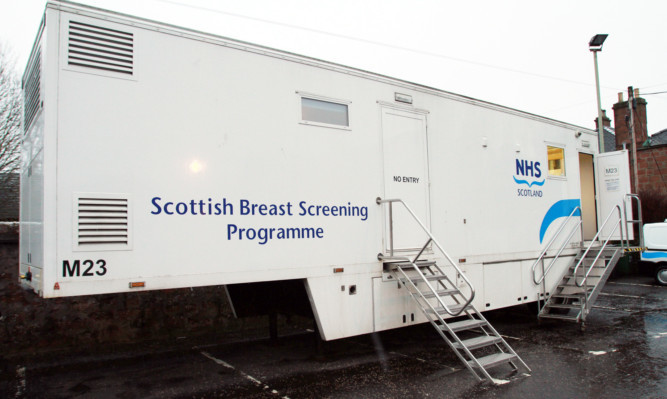An apparent reduction in the use of mobile breast cancer screening units could be putting women’s lives at risk, the Conservatives have warned.
The units, which allow for checks to be carried out without women having to attend hospital, were recorded as being operational for 1,865 days last year, compared with 2,336 days in 2013, new figures released under freedom of Information have revealed.
But several health boards were not able to provide information on how many days the units were in use, with a Scottish Government spokesman stating that “making judgments on this partial data is completely wrong and misleading”.
In the Greater Glasgow and Clyde NHS area the units were used for 475 days in 2014, down from 839 the previous year, but in NHS Lanarkshire their use increased from 354 days to 569.
Meanwhile in Shetland health bosses could only state that a unit had visited for a period in 2013
Breast cancer is one of the most common forms of cancer to affect women, with Scottish Conservative health spokesman Jackson Carlaw demanding an urgent explanation for the apparent reduction in use of mobile units.
The Tory MSP said: “It’s been made very clear by the Scottish Government that these mobile units increase detection and, therefore, save lives.
“That’s why it has to be explained urgently why there has been this apparent reduction in the days they operated last year.
“The Scottish Government is rightly forever talking about the importance of detecting breast cancer early, because it results in a better chance of survival for the patient.
“So why is it that this is operating less often across Scotland, and in some parts of the country hasn’t visited for years?”
The Scottish Government spokesman said: “Scheduling of these mobile units is done carefully and far in advance to ensure that places are visited on a three year cycle – ensuring there is an equity of regular access to the screening programme for women across Scotland. This is in line with advice on the most effective form of screening.
“Management and timetabling of each area’s unit is done locally by the screening centre manager for that area based on the three year cycle and length of time needed to be sited in any location at any given time. As such they plan carefully to meet local needs and make sure that all eligible women have regular access to this vital service.
“Overall uptake of breast screening remains high, with nearly three quarters of Scottish women participating in the programme. However, we are continuing to work and look for new ways to encourage uptake of screening appointments.”
